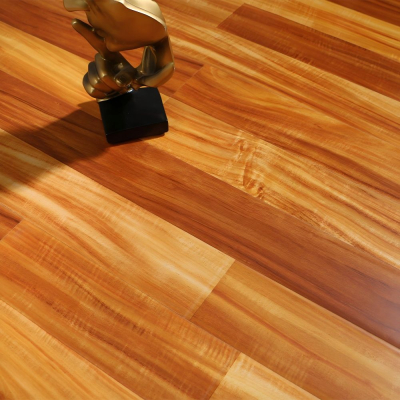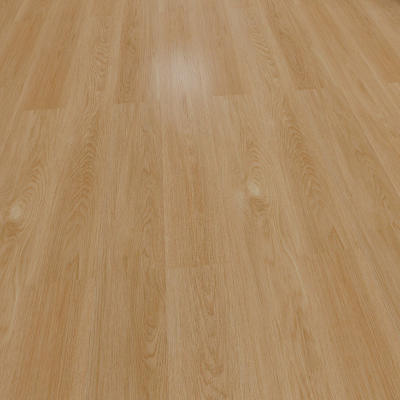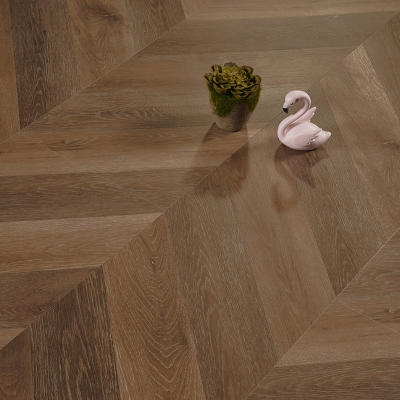SPC Flooring for Basements
SPC Flooring for Basements: A Complete Technical Guide
Introduction
Basements are one of the most moisture-prone areas in residential and commercial buildings. Choosing the right flooring is essential for ensuring long-term durability, water resistance, and comfort. Stone Plastic Composite (SPC) flooring has emerged as a leading choice due to its exceptional stability and resistance to water and temperature changes. This article provides a comprehensive analysis of SPC flooring for basements, covering its structure, performance, regulations, installation, and maintenance practices.
What Is SPC Flooring?
SPC (Stone Plastic Composite) flooring is a rigid core vinyl flooring made of limestone powder, PVC, and stabilizers. Unlike traditional vinyl flooring, SPC is engineered for strength, impact resistance, and moisture immunity.
Composition Layers:
Wear Layer: Protects against scratches and stains (measured in mils; typical range: 8–20 mil)
Vinyl Top Layer: Printed film replicating wood or stone aesthetics
SPC Core: Dense core with high dimensional stability
Underlayment (optional): Attached foam or cork for sound absorption and insulation
Why SPC Flooring Is Ideal for Basements
1. 100% Waterproof
SPC flooring does not absorb moisture, making it an excellent option for damp environments such as basements. It remains unaffected by minor flooding or spills, provided proper sealing at the edges.
2. Dimensional Stability
The limestone-based core resists expansion and contraction caused by basement temperature fluctuations. This makes SPC more stable than laminate or engineered wood in below-grade spaces.
3. Mold and Mildew Resistant
The non-organic core of SPC reduces the risk of mold growth—a common issue in humid basements.
4. Easy Installation over Uneven Subfloors
Thanks to its rigid core and click-lock system, SPC can be installed over concrete, tile, or old vinyl, even with minor imperfections.
5. Slip Resistance and Safety
Most SPC flooring complies with slip resistance standards such as ASTM D2047 and EN 13893, crucial for basement safety.
Engineering Principles Behind SPC for Basements
Thermal Expansion Coefficient: The rigid core reduces expansion coefficients to <0.01 mm/m/°C.
Load Resistance: Supports point loads >250 psi, suitable for placing gym equipment or storage units in basements.
Acoustic Ratings: When equipped with attached underlayment, SPC can achieve an IIC rating of 65+, reducing noise transfer between floors.
Installation Guidelines for Basements
Surface Preparation
Moisture content of concrete substrate must be <5% (measured via CM method)
Use 6 mil polyethylene vapor barrier for added protection
Click-Lock System Installation
Floating floor method is recommended
Maintain 5–10 mm expansion gap from walls
Compliance Standards:
ASTM F3261: Standard for resilient flooring plank
ISO 10582: Homogeneous and heterogeneous vinyl plank requirements
EN 13501-1: Fire resistance rating (typically SPC is Bfl-s1)
Maintenance Tips
Clean regularly with a pH-neutral cleaner
Avoid excessive water pooling
Use felt pads under furniture
Reseal transitions and baseboard gaps every 2–3 years
Frequently Asked Questions
Q1: Is SPC flooring suitable for a basement with a sump pump?
A: Yes. As long as water does not stand for extended periods and proper sealing is applied, SPC performs well near sump pump areas.
Q2: Can I install SPC flooring myself?
A: Most SPC flooring features a DIY-friendly click-lock system, but subfloor moisture and level must be addressed first.
Q3: How long does SPC flooring last in basements?
A: With proper installation and care, SPC flooring can last 15–25 years or more in basement environments.
Q4: Does SPC flooring add insulation?
A: While not as insulative as cork or carpet, SPC with an attached underlayment improves thermal insulation and comfort underfoot.
Conclusion: Is SPC Flooring the Right Choice for Your Basement?
From its waterproof properties to its rigid core technology, SPC flooring offers one of the most durable, cost-effective, and low-maintenance flooring options for basements. Whether used in a finished living area, home gym, or utility room, it ensures long-lasting performance.
Take the Next Step
If you’re planning to renovate or finish your basement, consider high-quality SPC flooring options that comply with relevant ASTM and ISO standards. For professional advice or access to premium-grade products, feel free to contact the experts at 本站 for tailored recommendations based on your specific basement conditions.





